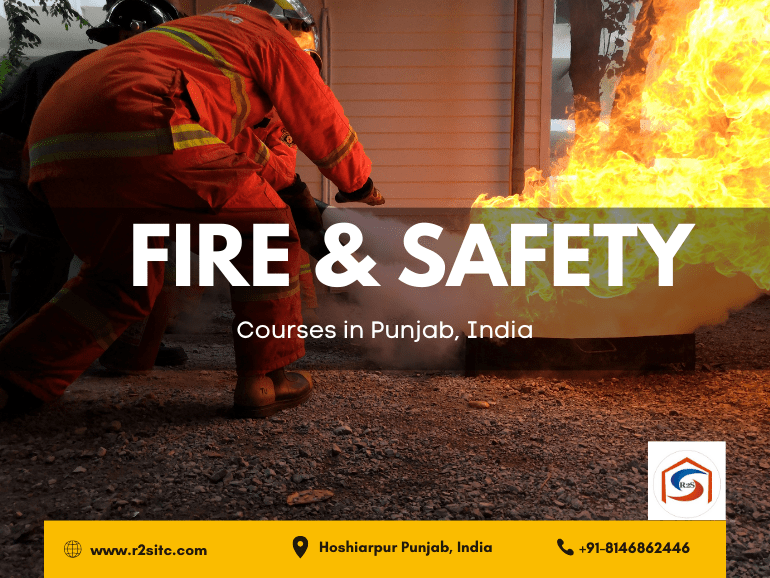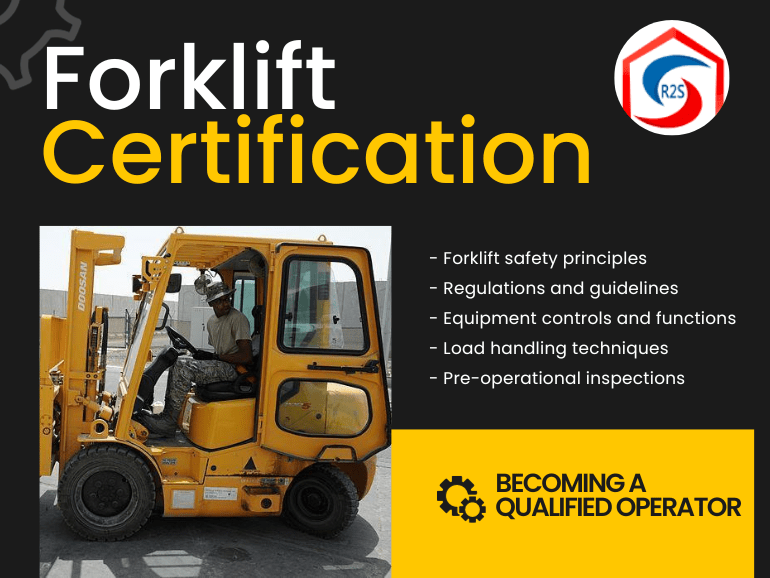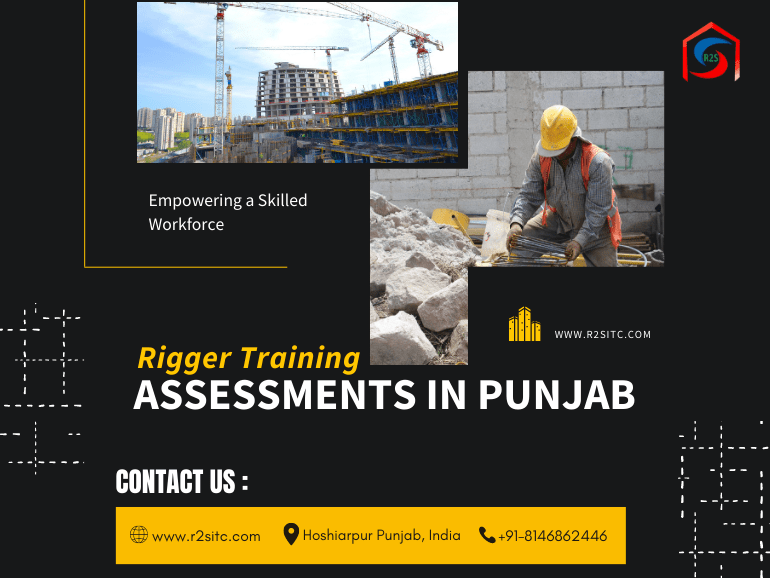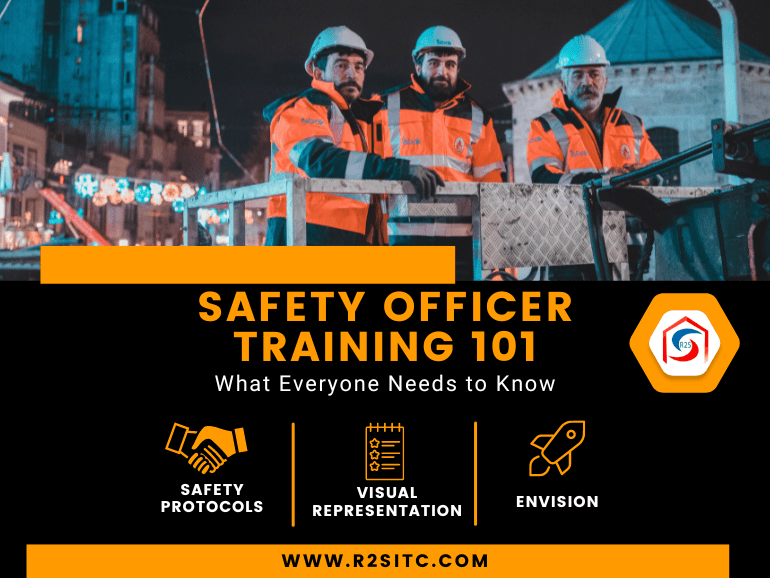In the busy world of industries, warehouses, and logistics, forklift certification is essential. These powerful machines make the movement of heavy goods and materials easier and more efficient. However, with great power comes great responsibility, and operating a forklift requires skill, knowledge, and, most importantly, certification to ensure the safety of both operators and everyone else in the vicinity.
If you’re looking to kickstart a career as a forklift operator or if you’re an employer seeking to provide your team with the necessary skills, this blog is your comprehensive guide. We’ll walk you through the essential steps to becoming a qualified forklift operator and why certification is crucial. Plus, we’ll introduce you to R2SITC (Road to Safety International Training & Consultant), your trusted partner for forklift training in Hoshiarpur, Punjab.
Why Forklift Certification Matters
Before diving into the steps, let’s address the fundamental question: Why is forklift certification important?
1. Safety First: Operating a forklift without proper training and certification is a recipe for disaster. These machines are heavy, have limited visibility, and can cause accidents leading to severe injuries or even fatalities.
2. Legal Requirement: In many regions, including Hoshiarpur, Punjab, it’s not just good practice but also a legal requirement for forklift operators to hold a valid certification. Non-compliance can result in fines, penalties, and legal liabilities.
3. Employability: Certification increases your chances of landing a forklift operator job. Employers prioritize candidates with the necessary skills and certifications, ensuring they can operate safely and efficiently.
Now, let’s discuss the steps to becoming a qualified forklift operator.
Step 1: Find a Reputable Training Provider
The journey begins by selecting the right forklift training provider. In Hoshiarpur, Punjab, R2SITC (Road to Safety International Training & Consultant) stands out as a trusted name in forklift training. Their experienced trainers and state-of-the-art facilities ensure you receive top-notch education.
Step 2: Choose the Right Forklift Training Program
Different types of forklifts require distinct training programs. Consider the type of forklift you’ll be operating, such as counterbalance, reach truck, or pallet jack, and enroll in the corresponding training program. R2SITC offers a wide range of courses catering to various forklift types and skill levels.
Step 3: Attend Classroom Instruction
Forklift training typically consists of both classroom instruction and practical hands-on training. In the classroom, you’ll learn about:
– Forklift safety principles
– Regulations and guidelines
– Equipment controls and functions
– Load handling techniques
– Pre-operational inspections
R2SITC’s training modules cover all these aspects comprehensively, ensuring you have a strong theoretical foundation.
Step 4: Hands-On Practical Training
The practical training component is where you put your knowledge into action. Under the guidance of experienced trainers at R2SITC, you’ll learn how to:
– Maneuver the forklift safely
– Load and unload materials
– Navigate tight spaces
– Handle various loads
– Operate in different environments
Practical training is a crucial step as it hones your skills and helps you become proficient in operating a forklift safely and efficiently.
Step 5: Pass the Evaluation
Once you’ve completed the training, you’ll need to pass an evaluation to demonstrate your competency. This evaluation typically includes a written test and a practical driving test. R2SITC’s trainers ensure you’re well-prepared for these assessments, increasing your chances of success.
Step 6: Receive Your Forklift Certification
Upon successful completion of the evaluation, you’ll be awarded your forklift certification. This document serves as proof of your training and competency. It’s an essential credential that you should always have on hand while operating a forklift.
Step 7: Maintain Your Certification
Forklift certification isn’t a one-time achievement; it’s an ongoing commitment to safety. To maintain your certification, you may need periodic refresher courses and re-evaluations. R2SITC offers continuing education to keep your skills up to date and ensure you remain a safe and qualified forklift operator.
Why Choose R2SITC for Forklift certification Training
Now that you know the steps to becoming a qualified forklift operator, let’s explore why R2SITC should be your preferred choice for forklift training in Hoshiarpur, Punjab:
1. Experienced Trainers: R2SITC’s trainers are industry experts with years of experience. They provide hands-on instruction and share real-world insights, ensuring you’re well-prepared for the challenges of the job.
2. State-of-the-Art Facilities: Our training center boasts modern facilities and equipment, offering a safe and realistic training environment that mimics real workplace conditions.
3. Comprehensive Curriculum: R2SITC’s courses cover everything you need to know, from safety principles to practical skills. We go above and beyond to ensure you’re confident and capable.
4. Customized Training: We understand that each operator’s needs may vary. That’s why we offer customized training programs tailored to your specific requirements.
5. Job Placement Assistance: R2SITC not only trains you but also assists in job placement. We have strong ties with local industries and can help you find employment opportunities.
6. Commitment to Safety: Safety is our top priority. We instill a safety-first mentality in our students, ensuring they operate forklifts responsibly and minimize risks.
In conclusion, forklift certification is not just a piece of paper; it’s a commitment to safety, professionalism, and career advancement. Choosing the right training provider like R2SITC in Hoshiarpur, Punjab, is your first step toward becoming a qualified forklift operator. Join us today and embark on a journey to a safer and more rewarding career in the world of forklift operation.





